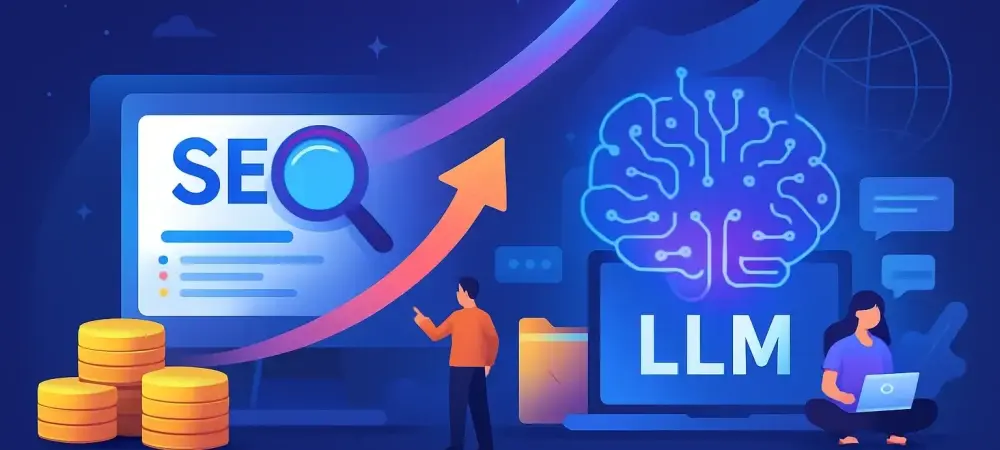As the digital landscape continues to evolve, the intersection of Large Language Models (LLMs) and Search Engine Optimization (SEO) is becoming increasingly significant. Businesses and SEO professionals face new challenges as LLMs begin to redefine how online content is managed and discovered. These models, which leverage vast amounts of data to generate context-rich responses, are transforming traditional search engines. They offer more nuanced interactions compared to conventional Search Engine Results Pages (SERPs), requiring a shift in SEO strategies and practices. This transformation has sparked a dialogue among industry experts, who are critically analyzing the utility and effectiveness of tools designed to navigate the intricacies of LLM-driven search systems.
Emerging Challenges in SEO with LLM Integration
SEO professionals have long relied on tools that measure static website metrics and keywords to optimize search visibility and drive performance. However, the emergence of LLMs has introduced fundamentally dynamic and context-sensitive search experiences, calling these traditional methodologies into question. LLM systems tailor their responses based on contextual understanding, presenting challenges in predicting and aligning business objectives with such fluid search results. Experts like Joe Hall have expressed skepticism regarding some of the new tools developed to track LLM visibility. Hall questions the concrete value these tools add, suggesting that they may be more focused on marketing their services rather than providing definitive strategic benefits.
Industry voices, such as Joshua Levenson, agree that traditional SEO tools are becoming obsolete in the face of AI-driven transformations. The metrics and frameworks that work well with fixed search results are often inadequate for understanding the complex data produced by LLMs. This sentiment highlights a broader industry trend that acknowledges the difficulties in measuring the effectiveness of SEO strategies in this new era. However, it also emphasizes the need for innovative solutions that can effectively integrate and interpret LLM-contributed data, helping SEOs develop more targeted and effective strategies.
Rethinking Tools and Methods for LLM-Dominated SEO
While the challenges are evident, the industry is already seeing the emergence of tools aimed at leveraging LLM data for SEO purposes. Professionals like Lily Ray highlight the importance of tracking entities that LLMs frequently mention in their responses, suggesting a new focus beyond traditional keyword optimization. Although imperfect, this approach encourages SEOs to consider the underlying data that LLMs draw upon, leading to richer insights and more precise targeting in marketing strategies. These entities can provide valuable information about the themes and topics that resonate with the target audience.
Dixon Jones and Ryan Jones have introduced tools like Waikay and SERPRecon, designed to monitor LLM visibility through entity and topic analysis. Waikay, for example, employs a gap analysis approach to offer SEO recommendations, while SERPRecon uses APIs and ISP data to observe user interactions and extract key entities and themes. This dual approach exemplifies how new tools aim to meet the challenges posed by LLMs by focusing on entity recognition and theme consistency rather than static metrics. As these tools mature, they are expected to play a pivotal role in shaping the future direction of SEO.
The Shift Toward a New SEO Paradigm
As SEO strategies evolve in parallel with technological advancements, there is growing recognition that static search practices must give way to more dynamic methodologies. The advent of LLMs and their integration with search engines necessitates a paradigm shift in SEO thinking—one that places greater emphasis on understanding the context, entities, and brand mentions inherent in search experiences. This holistic approach recognizes the multifaceted nature of user interactions with AI-driven technologies.
Billy Peery brings a thoughtful perspective to the table, suggesting that despite their volatility, LLMs often retain consistency in brand mentions and sources of information. Such insights propose a more stable framework for SEOs seeking to optimize their strategies for LLM-influenced searches. By prioritizing the broader narrative over specific keyword occurrences, businesses can enhance their brand visibility while maintaining alignment with evolving consumer preferences.
Toward Future-Ready SEO Strategies
As the digital landscape evolves, the synergy between Large Language Models (LLMs) and Search Engine Optimization (SEO) emerges as increasingly vital. Businesses and SEO experts face new hurdles as LLMs revolutionize content management and discovery. These models utilize a vast array of data to produce rich, context-driven responses, reshaping conventional search engines. Unlike traditional Search Engine Results Pages (SERPs), LLM-driven systems offer more refined, sophisticated interactions, prompting a shift in SEO strategies and methodologies. The impact of LLMs on SEO has ignited discussions among industry experts, who are rigorously assessing the practicality and efficiency of tools tailored for navigating the complexities posed by LLM-influenced search mechanisms. As the dialogue continues, professionals strive to adapt and optimize their approaches to remain competitive in this dynamic environment, ensuring their digital presence is effectively aligned with modern search expectations.

